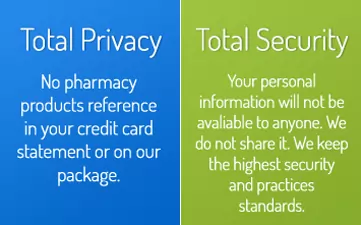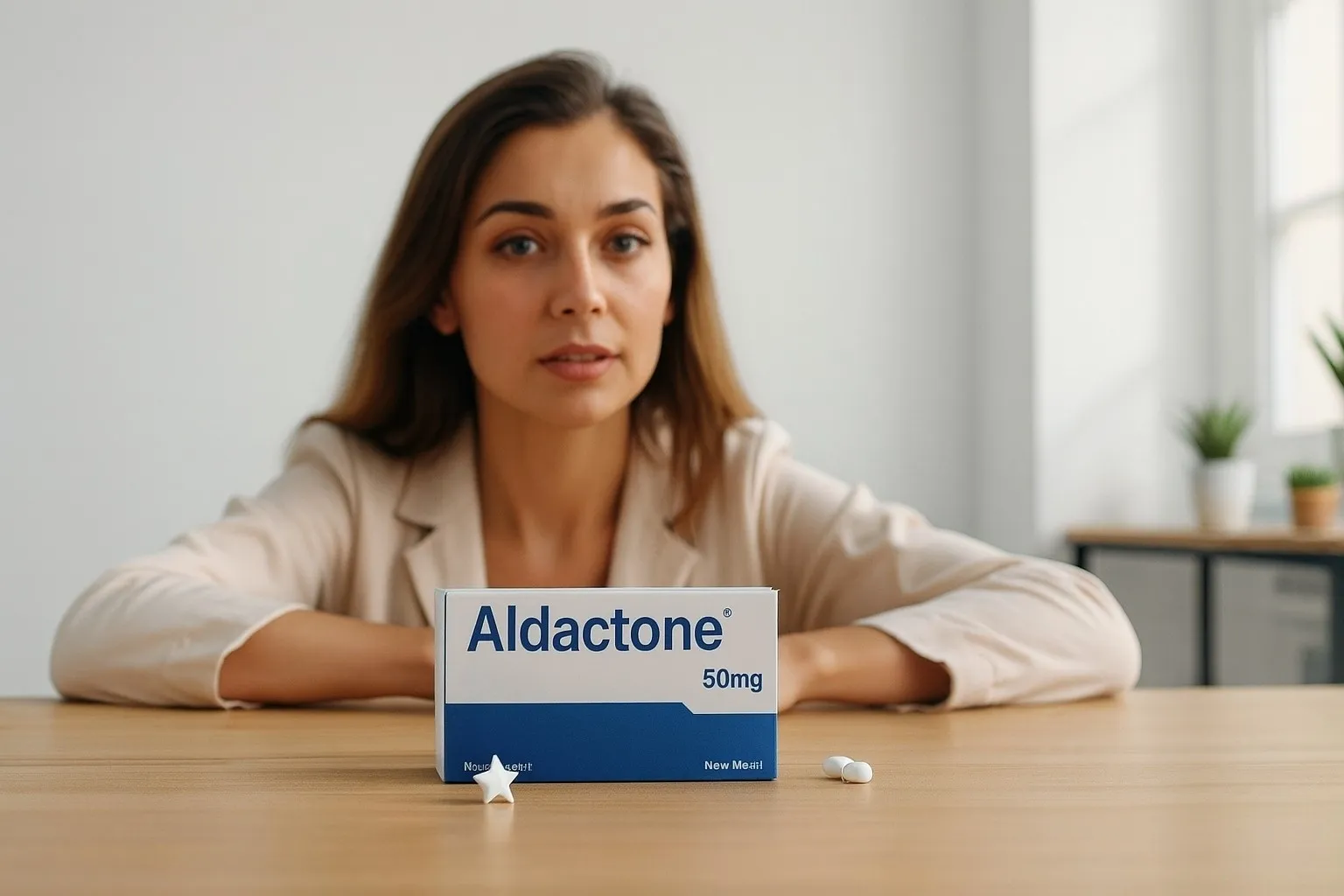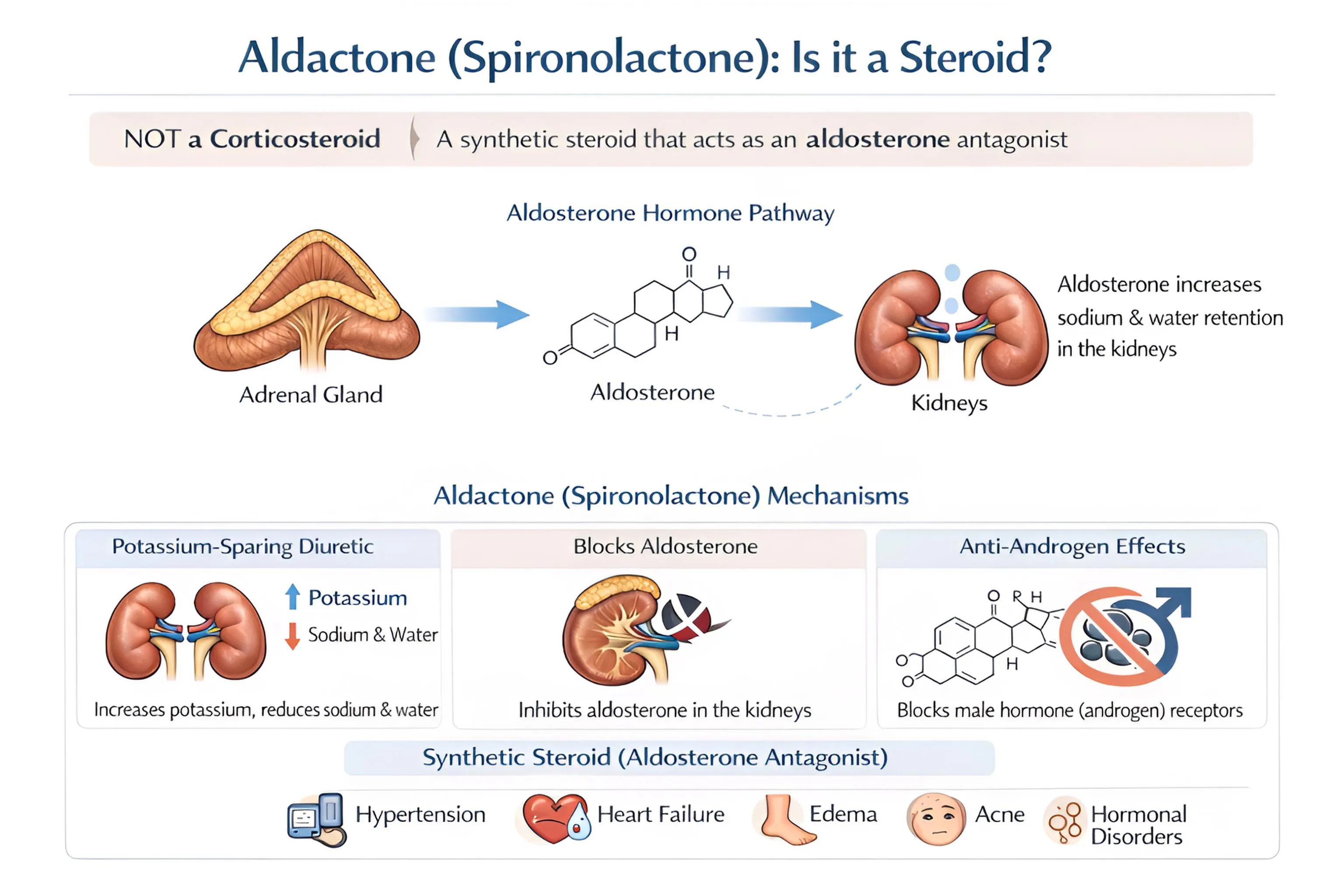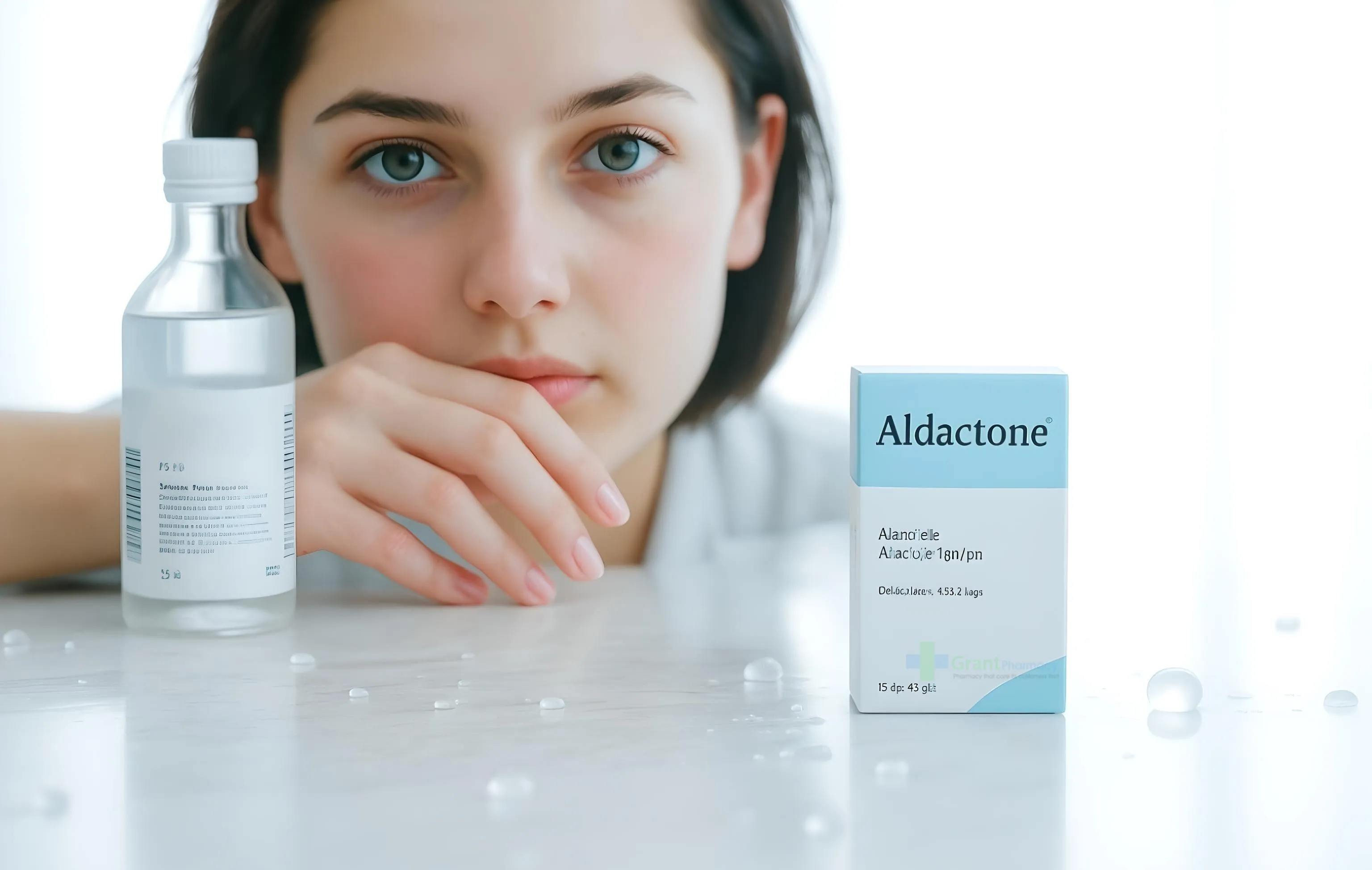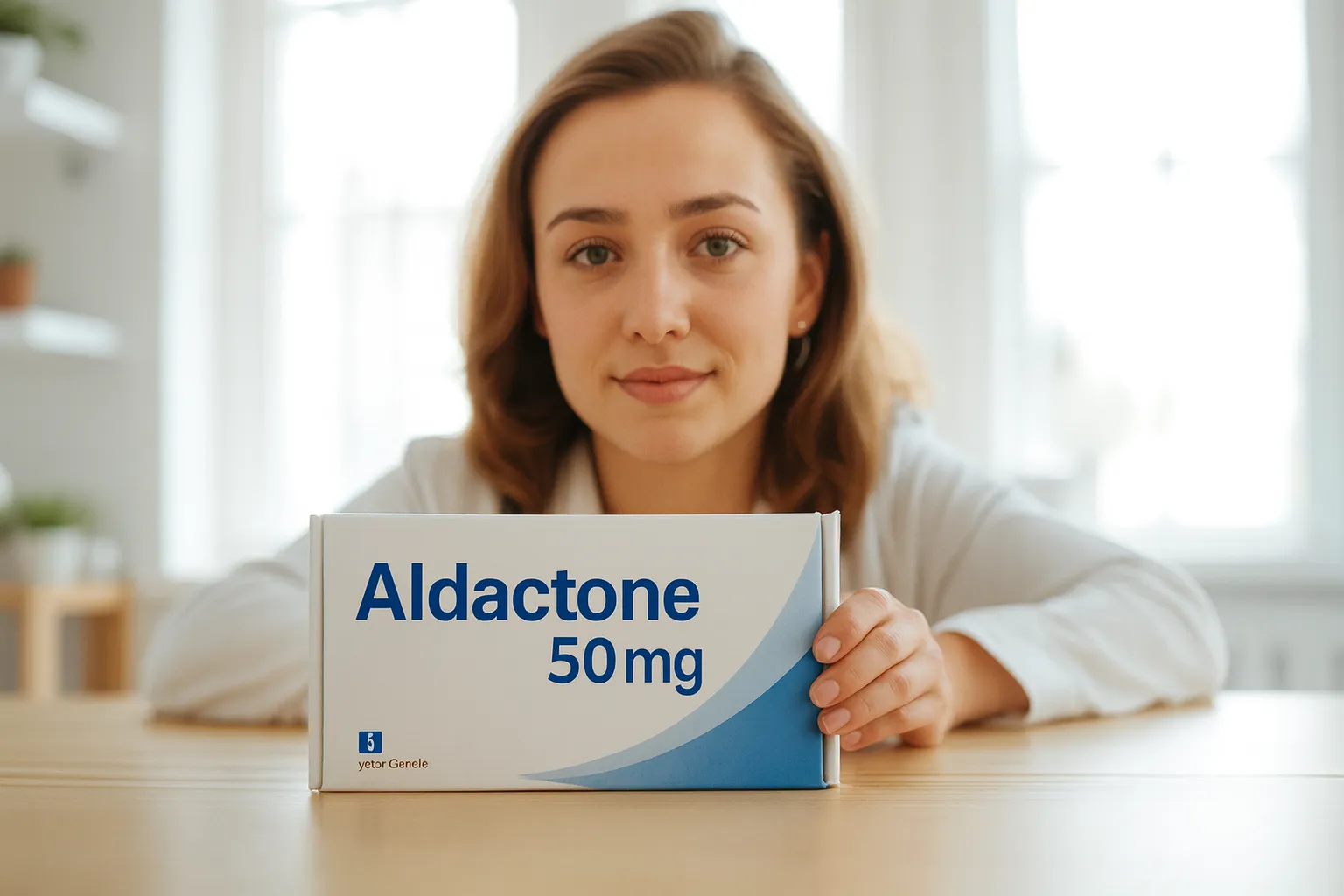
Can Aldactone Cause Hyponatremia? | Grant Pharmacy
Can Aldactone Cause Hyponatremia? What Is Aldactone? It is a brand oral tablet which is used control heart failure, high blood pressure, and other conditions. It can be used to treat fluid buildups as well. At Grant Pharmacy, you can check about the uses, dose, interactions, side effects and more. At Grant Pharmacy, check about can spironolactone cause insomnia and use it properly and use it properly. How Does Aldactone Work? This medicine contains potassium sparing diuretic. Taking the right dose will lowering the blood pressure and swelling. Physician will prescribe the right dose and follow it properly. In case of doubt, check it at Grant Pharmacy anytime. Without loss of potassium, it treats effectively and give potential results. How to Use Aldactone? Take this medicine as directed by the healthcare professional. Just swallow this tablet as whole without breaking or crushing it. Take the right dose as followed by the doctor and help you overcome the conditions. Patients have to aware of the question does spironolactone cause weight gain and get guidance immediately. Take it after the food for better results. At Grant Pharmacy, patients can check the uses, dose, and other details anytime. Dosage: Follow the proper dosage level ad prescribed. Take this after food and follow the same way and time everyday purpose. Taking this tablet with other medicines should be avoided and get consultation soon. Never overdose this medicine as it may cause serious side effects. It may happen due to underlying health conditions in most cases. Follow the dose pattern properly and check it at Grantpharmacy before using the first dose. Don’t forget and miss the single dose. It may delay the treatment time and affects the results. So, consult the doctor and get their opinion at first and then take the dose properly. At Grant Pharmacy, patients can see through the dosage details. Precautions and warning: If you are stop taking it without consultation, conditions may worsen and affects a lot. Follow the doctor advise and use it properly. Some side effects may happen at the initial intake. So, get guidance properly and wait for the results without facing risks. Before using the first dose, check about does spironolactone cause weight gain and then take the right dose level properly. Tell your doctor about the previous health conditions and surgeries if happen in past. At Grant Pharmacy, learn the precautions and warning carefully. Inform the physician if you are pregnant and breastfeeding women. So, they can adjust the dosage level and follow it properly without any hassles. Before using the first dose, check can spironolactone cause insomnia and get emergency medial guidance. Side Effects: Sometimes, side effects may happen due to underlying health conditions or overdose happen. At that time, stop the dose and get consultation soon as possible. Patients can experience side effects and it is quite common at the first time. It goes away within few hours and sometimes a day to recover. But, if the problem persists, don’t take the stop and get emergency medical attention. At Grant Pharmacy, learn about its side effects such as common, mild and severe. ➡️Nausea➡️Vomiting➡️Leg cramps➡️Dizziness➡️Drowsiness Drug Interactions: ⚠️Drug-to-Drug Interactions Taking aldactone with other medicines without consultation is not allowed. Patients with other medical conditions have to get opinion at first and then take it. At Grant Pharmacy, patients have to read the interactions lists and maintain proper dosage level. Don’t miss to take the spironolactone period every 2 weeks and then use it properly without facing side effects or allergic reactions. 🔸Losartan🔸Telmisartan🔸Olmesartan medoxomil🔸Ramipril 🍷Drug-to-Alcohol Interactions Avoid taking alcohol with this medicine. It may cause serious side effects and allergic reactions. Stop the medicine and get emergency attention. In case of severe heart failure and high blood pressure, take spironolactone period every 2 weeks as directed by the healthcare professionals. ❌Drug-to-Food Interactions There are no such instructions to be followed while taking it with foods. But, avoid junk and spicy foods to get rid of the side affect’s others if possible. Make sure to use the right dose of spironolactone depression and then take the right solution to overcome the health conditions. Can Aldactone Cause Hyponatremia? Yes, this may cause hyponatremia which may occur in rarely gout precipitated. Patients have to monitor urine analysis, uric acid, and blood glucose level regularly. Avoid taking spironolactone depression if you are allergic to the medicine and overcome the side effects. Doctor consultation is necessary before using the dose and follow the medicine time carefully. Conclusion: Finally, taking this medicine is a good approach to control and treat heart failure, high blood pressure and others. Patients have to get opinion from the healthcare professional and then take it. Don’t take it without getting proper consultation. At Grant Pharmacy, check the dose carefully before taking it. FAQs: What is the best time to take Aldactone Tablet? Your physician will take the right dose and advised you to take it at the morning time. It helps remove excess fluids from the body and get rid of the risks. Follow the same dose level properly and use it without any risks. Does Aldactone Tablet treat hypertension? Yes, this medicine will treat this condition carefully and use it properly. It would be the best time to overcome the risks and get the solution. It improves lowering the blood pressure and taken before the food. What foods should I avoid while taking Aldactone Tablet? Some foods are not allowed as it may cause serious side effects and risks may happen. These foods may increase the potassium levels and fatal time may happen. Consult the doctor and other food choices are to avoid careful. Try to avoid foods containing junks and spicy foods. Can I use Aldactone Tablet for weight control? No, this medicine should be used for weight control and consult a doctor properly. In case of side effects happening for longer time, stop the dose and consultation is required. Ask the pharmacist about the dose and take the weight related concerns.











